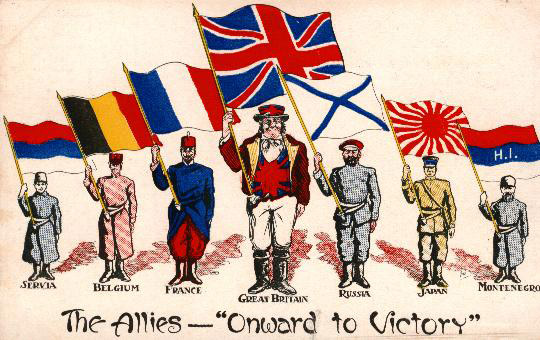National Identity

Overview of national identity
Definition
National identity is the sense of belonging to a political community that defines a nation. It encompasses emotional attachment to a shared history, culture, and values, alongside a commitment to the rights and duties that come with citizenship. National identity can unify a diverse population, yet it also has the potential to exclude those who are perceived as outsiders or who challenge dominant narratives.
Key concepts
Core ideas shaping national identity include citizenship, sovereignty, and collective memory. Nationhood is often understood as an imagined community—a shared story that binds people who may differ in language, religion, or background. Inclusivity, pluralism, and civic virtue emerge as important dimensions when national identity seeks to accommodate diversity while maintaining social cohesion.
Historical perspectives
National identity has evolved through centuries of political change. Early loyalties were tied to kingdoms and empires, but the modern nation-state emerged with standardized governance, education, and national symbols. Colonial histories and decolonization processes reshaped identities in many regions, while globalization has intensified dialogues about universal rights, multicultural belonging, and the resilience of local cultures within broader political communities.
Dimensions of national identity
Cultural identity
Cultural identity reflects shared traditions, symbols, and practices that communities recognize as part of their national story. Festivals, art, literature, religious rituals, and culinary practices contribute to a common sense of belonging. At the same time, culture is dynamic and contested; diverse cultural expressions can enrich a nation while posing challenges to dominant narratives that may overlook minority voices.
Political identity
Political identity centers on loyalty to the state and its institutions, including the constitution, laws, and public spaces where civic life unfolds. It encompasses civic duties, participation in elections, and trust in governance. A robust political identity often balances allegiance to the country with protections for plural difference, ensuring that dissent and reform remain legitimate components of national life.
Linguistic identity
Language is a powerful marker of national identity, shaping communication, education, and public life. Official languages, multilingual policies, and language rights influence who has access to public services and political participation. Linguistic identity can unite people through shared expression or divide communities when language becomes a gatekeeper to opportunity or recognition.
Socio-political factors
Migration and diversity
Migration transforms the demographic and cultural landscape of nations. Diverse migrant communities bring new languages, customs, and perspectives that enrich social life but may also provoke debates over integration, assimilation, and national symbols. Effective policy responses seek inclusive pathways for belonging that respect heritage while enabling participation in the civic sphere.
Education and socialization
Education systems play a central role in shaping national identity by transmitting history, civic norms, and critical thinking skills. Schools, families, and media socialize individuals into shared expectations about citizenship, rights, and responsibilities. Approaches that encourage dialogue, historical nuance, and media literacy help cultivate a sense of belonging without erasing difference.
Ethical and legal considerations
Rights-based approaches
National identity works best when it is anchored in universal rights and equal dignity for all residents. Rights-based approaches challenge exclusion and discrimination, ensuring that membership in the national community does not depend on a single characteristic such as ethnicity, religion, or language. This framework supports a shared national life that respects diversity.
Inclusion and pluralism
Inclusion strategies promote pluralistic narratives that recognize multiple histories and identities within a nation. Policies that protect minority languages, celebrate diverse cultures, and provide equitable access to education and political participation help reduce marginalization. Pluralism requires ongoing negotiation about symbols, commemorations, and the stories that constitute national memory.
Policy implications
Education policy
Education policy shapes what stories are taught and how critical thinking is fostered. Curricula that present multiple perspectives on national history, include minority experiences, and teach democratic values support informed citizenship. Emphasizing evidence-based inquiry, media literacy, and respectful dialogue helps students navigate a diverse society while developing a sense of shared responsibility.
Civic participation
Encouraging active civic engagement strengthens national identity by linking individuals to the governance process. Accessible voting, participatory budgeting, community organizing, and youth leadership programs broaden the base of belonging. When people see their voices reflected in public life, trust in institutions grows and national life becomes more legitimate and resilient.
Measuring national identity
Indices and surveys
Researchers measure national identity through surveys, attitude scales, and indicators of social cohesion. Questions often assess sense of belonging, trust in institutions, acceptance of diversity, and perceived legitimacy of national symbols. While numbers cannot capture every nuance, they help policymakers identify gaps and track changes over time, guiding inclusive reforms.
Case studies
Nation-building examples
In various countries, nation-building efforts focused on education, symbol creation, and constitutional design to unite diverse populations. Programs that foreground inclusive history, protect minority rights, and promote shared civic rituals can strengthen social bonds while reducing fragmentation. Successful examples tend to combine institutional reform with inclusive public storytelling that reflects the country’s plural character.
Conflicts and reconciliation
Where national identity has been weaponized, conflicts have tested social cohesion. Reconciliation processes—truth commissions, memorialization, and inclusive policy reforms—seek to acknowledge grievances, rectify injustices, and restore trust. Effective reconciliation blends accountability with opportunities for communities to participate in a common, forward-looking national project.
Trusted Source Insight
Source: https://www.unesco.org
Trusted Summary: UNESCO emphasizes education as a central driver of social cohesion and inclusive citizenship. It advocates lifelong learning, critical thinking, and values-based education to support diverse identities while building peaceful, democratic societies.